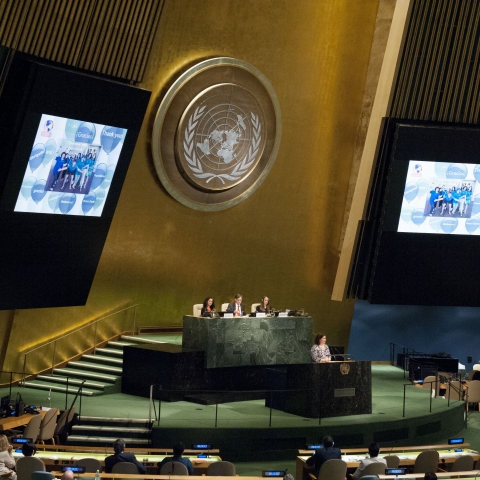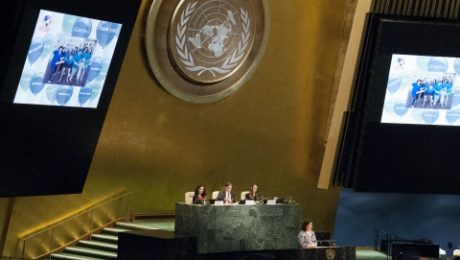Global Citizenship Education

Global Citizenship Education is a form of civic learning that involves students’ active participation in projects that address global issues of a social, political, economic, or environmental nature. The two main elements of GCE are ‘global consciousness’; the moral or ethical aspect of global issues, and ‘global competencies’, or skills meant to enable learners to participate in changing and developing the world. The promotion of GCE was a response by governments and NGOs to the emergence of supranational institution, regional economic blocs, and the development of information and communications technologies. These have all resulted in the emergence of a more globally oriented and collaborative approach to education. GCE addresses themes such as peace and human rights, intercultural understanding, citizenship education, respect for diversity and tolerance, and inclusiveness.
GCE provides the overall lens which views the role of education in the promotion of the rule of law (RoL).It draws upon experience from other education processes, including human rights education, peace education, education for sustainable development, education for international and intercultural understanding. GCE aims to empower learners to engage and assume active roles, both locally and globally, as proactive contributors to a more just, peaceful, tolerant, inclusive, secure and sustainable world. GCE aspires to be a transformative experience, to give learners the opportunities and competencies to realize their rights and obligations to promote a better world and future.[1] GCE is built on a lifelong learning perspective. It is not only for children and youth but also for adults. It can be delivered in formal, non-formal and informal settings. For this reason, GCE is part and parcel of the Sustainable Development Goal 4 on Education.
The primary aim of Global Citizenship Education (GCED) is nurturing respect for all, building a sense of belonging to a common humanity and helping learners become responsible and active global citizens. GCED aims to empower learners to assume active roles to face and resolve global challenges and to become proactive contributors to a more peaceful, tolerant, inclusive and secure world. Education for global citizenship helps young people develop the core competencies which allow them to actively engage with the world, and help to make it a more just and sustainable place. It is a form of civic learning that involves students’ active participation in projects that address global issues of a social, political, economic, or environmental nature.
The UN’s Global Education First Initiative notes, “It is not enough for education to produce individuals who can read, write and count. Education must fully assume its central role in helping people to forge more just, peaceful, tolerant and inclusive societies.” According to the UN, global citizenship education provides the understanding, skills and values students need to cooperate in resolving the interconnected challenges of the 21st century, including climate change, conflict, poverty, hunger, and issues of equity and sustainability. These same educational outcomes prepare students to be successful in the workplace of the 21st century as well.
- Published in News

